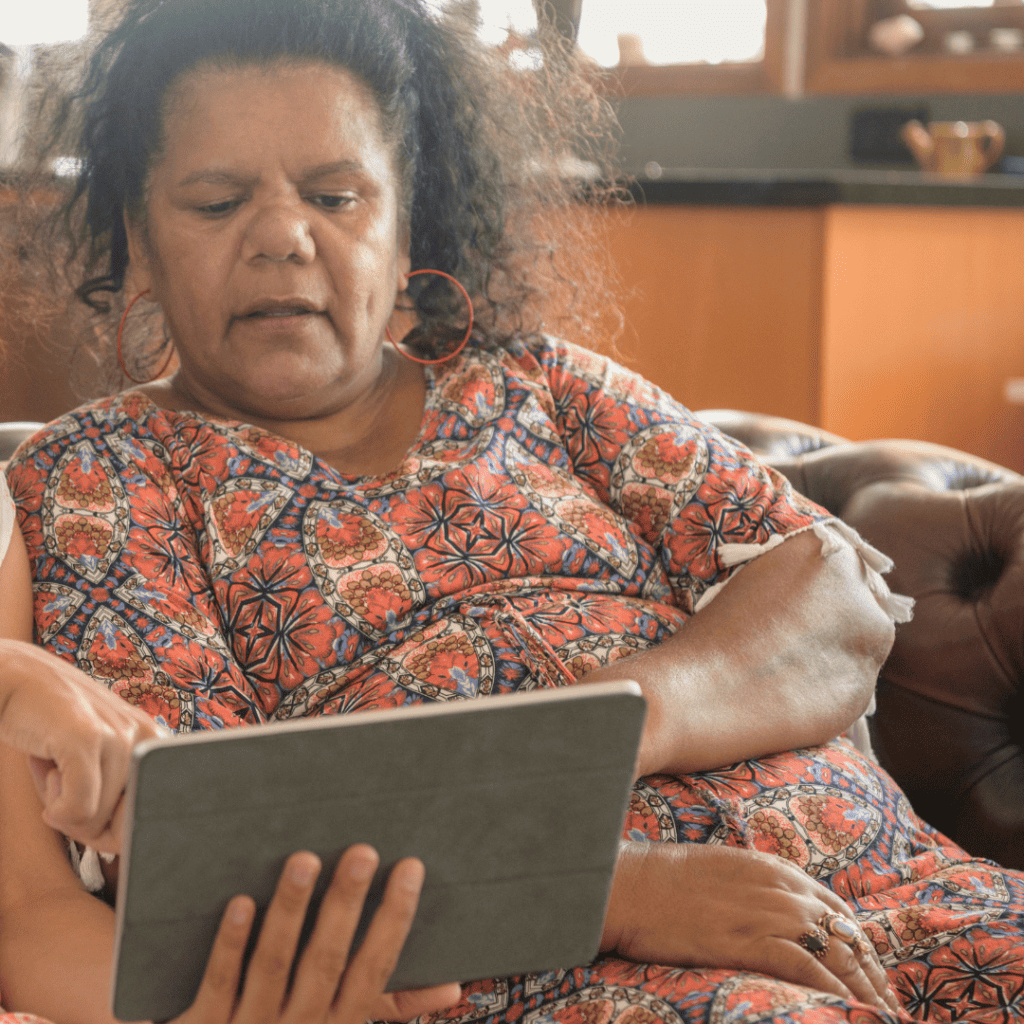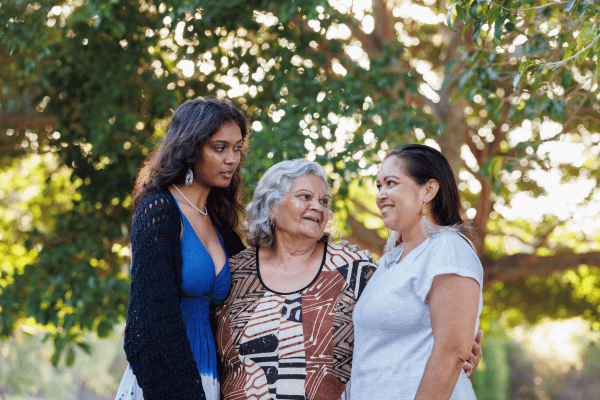In honour of National Reconciliation Week, it is important to shed light on the current disparities in breast cancer care experienced by Aboriginal women and men.
These individuals face notable challenges in accessing timely screening, receiving prompt diagnoses, and obtaining appropriate treatment for breast cancer.
A recent research study led by Banham (2019) titled “Disparities in breast screening, stage at diagnosis, cancer treatment and the subsequent risk of cancer death: a retrospective, matched cohort of Aboriginal and non-Aboriginal women with breast cancer in Australia” explores the inequities faced by Aboriginal women and men in Australia’s breast cancer care system. The study emphasizes the importance of addressing these disparities to reduce the disproportionate burden of breast cancer within this population.
The study revealed significant disparities in breast cancer care between Aboriginal and non-Aboriginal women and men in Australia. Aboriginal women and men were found to have lower rates of breast cancer screening, resulting in later stage diagnoses. Additionally, they experienced delays in receiving appropriate treatment, leading to a higher risk of cancer-related mortality. These disparities are rooted in various factors, including cultural, geographic, and socioeconomic barriers, which restrict access to necessary healthcare services.

At Breast Cancer Care WA, we recognize the urgent need to address these disparities and we are in the early stages of developing a Reconciliation Action Plan to help close the gap in breast cancer care for Aboriginal women and men.
By continuing to provide specialised counselling and nursing and online support groups, we aim to reach women in remote and rural areas (also metro areas) who often face limited access to healthcare services. These services ensure that Aboriginal women and men can access emotional support, information, and resources regardless of their geographical location.
We understand that community collaboration plays a pivotal role in eliminating healthcare disparities. We are taking on the initiative to engage with local community centres to enhance outreach efforts and ensure that our services are accessible to women and men in need, by providing computer and internet access to enable clients to attend our support groups and online counselling sessions.
Counsellors and support groups are powerful tools in addressing the emotional and psychological needs of women and men facing breast cancer. By providing access to these resources, we can empower Aboriginal women and men to cope with the challenges of their diagnosis, treatment, and survivorship. These initiatives also foster a sense of community and connection, which is vital for mental well-being and overall quality of life.
Aboriginal women and men have long endured the burden of disparities in breast cancer care, resulting in delayed diagnoses and suboptimal treatment outcomes. However, here at Breast Cancer Care WA we are bridging the gap and ensure that every individual, regardless of her cultural background or geographical location, receives fair and equitable care. Through the implementation of personalised relationship based counselling and nursing and online support groups, along with collaborations with local community centres, we hope to reduce these disparities and enhance the outcomes for Aboriginal women and men with breast cancer.

